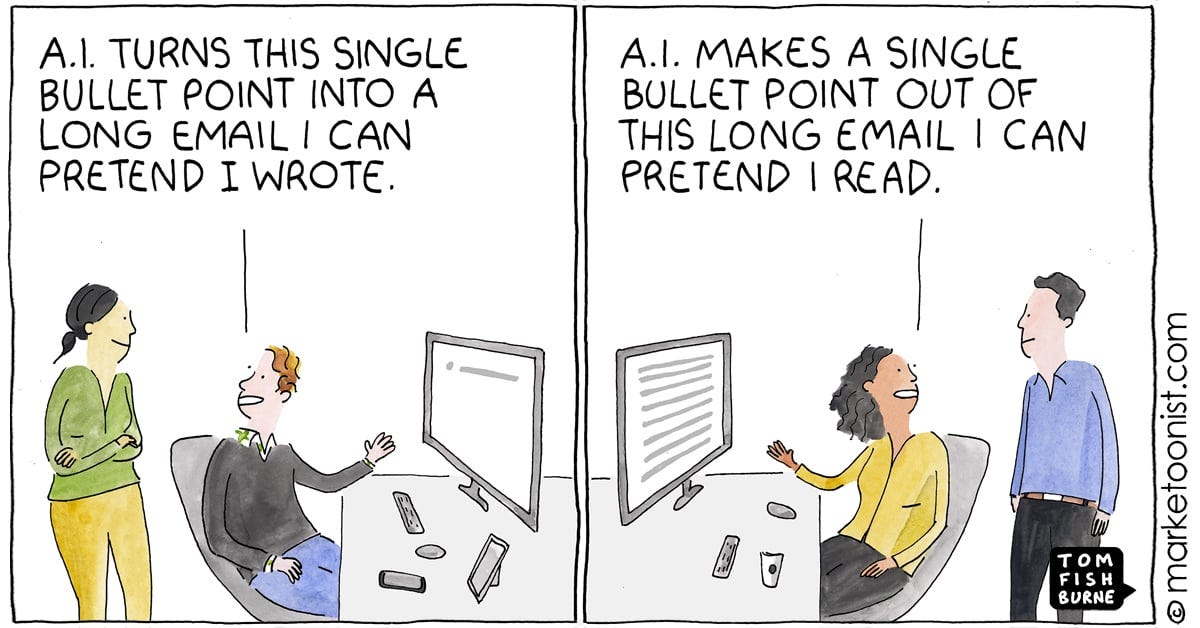Ven Reads 9/25
From the ashes, an old format with a new twist arises
A while ago, I tried to start a running list of all my recommended reading, which simply doesn’t work when you’re incapable of proper record-keeping and allergic to routine and rigidity. That, compounded with the fact that I pretty much spend all day reading and writing, left my now-deleted “reading list” woefully abandoned and my Goodreads empty. But I do have a newsletter that people read, and I figure my “month in reading” would be something enjoyable to share. Of course, please share your own suggestions in either the Malt Liquidity Chat or in the comment sections of these posts, which should be unlocked. I’ll try to touch upon a wide spectrum of topics and styles each month, though the distribution will vary.
Kafka and Brod (The Elif Life — Substack)
In many ways, Elif Batuman lives the life I wanted as a kid — learned Russian at Harvard, Comp Lit at Stanford, writes for the New Yorker, and makes a living purely off of writing. If I was less of a contrarian, and the political winds hadn’t swung the pendulum regulating the literature complex to the polar opposite of what I represent, maybe it would have happened. Anyway, I digress.
When I write about Kafka, it’s about the systemic philosophy he outlined rather than the man himself. Elif’s post is a transcript from
the talk I gave at a Kafka conference in Prague—about the Kafka- [Max] Brod collaboration in work and in life. I’ve included the original slides, plus a few new images and links
where you truly get a glimpse at what “comparative literature” actually is — the study of writing across time and medium to figure out what the motivations of the people behind the words were, who they are, and maybe finding a bit of insight along the way to apply to your own writing. Every great writer is an even greater reader, and stumbling into this while I was in my own analysis of the term “Kafkaesque” was the kind of coincidence that makes you stop believing in coincidences.
The essay is paywalled, but “The Elif Life” (pronounced in my head el-if like the statement) is one of my favorite sites to peruse when I want to ignore the non-literary world for a hot minute. There should be a free trial available, which I’d highly recommend if you have some time to binge the site.
Damn Spam (New Yorker July 30, 2007)
It’s interesting to look back at a time when spam was a new thing that people were learning to deal with,
(Spammers usually need to send a million e-mails to get fifteen positive responses; for the average direct-mail campaign, the response rate is three thousand per million.) “Spammers just shrug it off and send a million.” That amount of e-mail can overwhelm servers and waste time, particularly for those who check their mail several times a day. (It takes at least five seconds to recognize and delete an e-mail. If a billion spam messages elude detection every day—which means that ninety-nine per cent do not—that adds up to a hundred and fifty-nine years of collective time lost hitting the delete button every day.) Scarrow told me that of the four billion e-mails processed by Hotmail every day, they deliver only six hundred million. The rest are spam…
and even cuter when people thought it was a solvable problem:
In 2002, the programmer Paul Graham wrote an essay called “A Plan for Spam,” which became an intellectual manifesto for the thousands of researchers trying to find a way to clean up the Internet. “I think it’s possible to stop spam, and that content-based filters are the way to do it,” he wrote. “The Achilles’ heel of the spammers is their message. They can circumvent any other barrier you set up. But they have to deliver their message, whatever it is. There is no way they can get around that.”
Around January, I became fairly certain that normal humans had been surpassed by AI. This isn’t a Skynet threshold — frankly, if you understand Algebra 2 and have a memory that extends beyond 7 topics, you’re able to access the 95th percentile+ of society — but it does mean that we are in the end state of “normal person literacy”.
There’s a famous story about Stephen Curry where, in the 2022 NBA finals, he noticed the rim was slightly too high during warmups because his shots weren’t going in. It’s just as true for someone like me who has probably read more in my 24 years of being literate than tens of millions of humans put together, maybe more. It’s so, so obvious when something is botted, astroturfed, poorly edited, copied and pasted, and inorganic that I’m shocked other people cannot see it.
But people overwhelmingly can’t see it — we have reached the point where this comic
has completely saturated institutions such that the normal processes of learning, grading, hiring, and cooperating have been completely destroyed. The “warp” came sometime around 4o, it’s just much more mundane and boring than we ever thought.
To come up with a solution to this problem, we have to understand the approach that originally worked that AI broke through — Graham’s “content-based filtering” doesn’t work when our content is what has been overfit to. Food for thought, this is definitely going to be a discussion I’ll generate in the near future.
The Good Soldier Švejk — Jaroslav Hašek
A very famous book in some parts of the world that has been weirdly forgotten in others. Optimists prefer to view the lens of the world through sci-fi, cynics prefer satire, and skeptics prefer postmodernism. When I recommend books, I find no reason to give a synopsis or spoil the experience with analysis — rather, I’ll invoke appeal to authority in a curated fashion:
Joseph Heller said that if he had not read The Good Soldier Švejk, he would never have written his own anti-war satire Catch-22.[6][7][8]
If all writing is autobiographical, as I believe it is, all anti-war fiction is derivative from the historical context the author grew up in. Dare I say, Americans are simpletons in comparison to the bizarro world of the 1900s in Europe and the Soviet Union — the intelligence of the populace that got the message to stay mum about the contradictions and paradoxes that plagued the bizarro worlds that led to the various European conflicts or the composition of the Soviet Union (as highlighted in my favorite novel ever, Moscow-Petushki) did not translate to the gung-ho American where every seeming slight must be shouted out from the mountaintops to raise “awareness” (for what purpose, it’s never clear.)
Nowadays, people post on their Instagram stories with a lack of depth that would make even Vonnegut blush, but for the literarily-inclined, making light of “nothing ever happens” beyond memes
might be the only way to properly sit on your hands and wait for the right time to act as the world realigns. The best comedy is an absurdist framing and acceptance of “Such is life” — indeed, this is largely the appeal of Gogol and why I fell in love with Russian literature in the first place.
On that note…
At the end of each of these posts, I’ll write a little note to the dear reader. I was pleasantly surprised at how many people were receptive to climbing the only paywall I’ve ever used on this site — to me, this means that there’s a strong enough base such that, even if I’m not writing the about the ol’ market dog-and-pony show, there’s a sticky enough community here to collectively improve and iterate upon.
While I have the privilege of writing as I wish, many of the writers whose pieces I will recommend do require subscription revenue for income. And while I refuse to pay for codswallop MSM, the beauty of Substack is that a lot of great writers have ended up on this site.
Now that I’m not focusing on trading, I have seemingly endless amount of times to curate for you, the reader, who is presumably otherwise occupied. While my posts will always remain free, I can’t encourage the bypassing of paywalls or the free downloading of books, even though we all know how to do so. As such, any paid subscription revenue will go directly towards the purposes of curation — I already pay for the subs I like, and I can promise if I recommend something it’ll be worth your time — or a round of drinks if we’re able to link up. As a bit of a bonus, at least on Substack, I think I’ll make my DMs available to paid subs only — comments, emails, archive and chat will always be free — where I’ll happily answer any and all queries. The only way you stay fresh is by facing new problems and organic questions constantly.
I’m aware that, especially if you’re just starting out in college or your career as some of my readers are, even $20 a month in media subs is a night out that has to be shelved, a nuisance to see leave your bank account, and there’s really too much free content available for you to be paying other people’s salaries at this point in your life. If that’s the case, send me a note and I’d be happy to send a gift subscription your way.
Accordingly, I’ll sit down and actually figure out how referrals work on this site, along with other reader-reward features. Some ideas I have include author copies of the eventual Malt Liquidity anthology, and more. Eventually, I’ll cap out subs to the site — too much access to a good thing ruins it for everyone — but we’re a long ways away from that. Maybe that’ll be the 2026 goal.
Thanks again for reading and subscribing, every single day I get a post done feels like a useful one!




